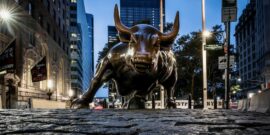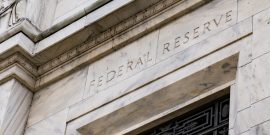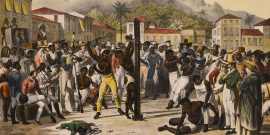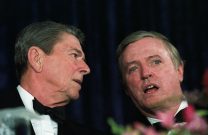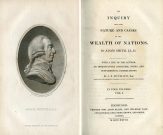George Gilder questions the fundamentals of modern economics, and sketches the contours of a new paradigm.
Donald Devine
Pope Benedict XVI was a dominant force in the intellectual debate over the problems of progressive liberalism and our need for tradition.
Fed leadership has not produced the positive, stable results promised.
In his nods to complexity, Hazony shows that he's not as different from fusionists as he claims.
Relying on the Court to enforce uniform opinions on rights when there is no consensus seems more like an invitation to civil war than to civil rights.
To move forward on race relations, we first need to understand the inherent complexities about slavery and slaver-ownership.
The political theorist who figured out why nearly everyone today supports democracy but most people are “disenchanted with the way it works.”
The modern conservative movement was born in 1955 bearing a revealing quirk.
One can find rationalistic, empirical, and revelational aspects in John Locke’s thinking--but that doesn’t make him incoherent.
Donald Devine is senior scholar at the Fund for American Studies. He is the author of The Enduring Tension: Capitalism and the Moral Order, new from Encounter Books, America’s Way Back: Reclaiming Freedom, Tradition, and Constitution, and Political Management of the Bureaucracy. He served as President Reagan’s director of the U.S. Office of Personnel Management during his first term and can be followed on Twitter @donalddevineco1.
